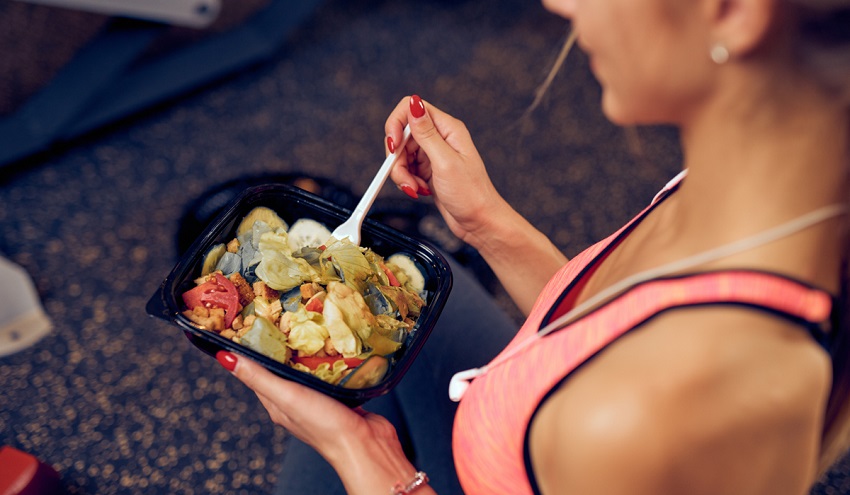
If you’re a runner, you already know how important it is to fuel your body properly before hitting the pavement or the trail. Your body is like a car – it needs the right kind of fuel to perform at its best. Eating before running can significantly impact your performance, energy levels, and overall experience. In this article, we’ll explore the best practices for eating before a run to ensure you get the most out of your workout. This content is brought to you by Ezhealthinsurance.org.
Hitting the Sweet Spot: Timing Matters
The timing of your pre-run meal is crucial. Eating too close to your run can lead to discomfort, while eating too early might leave you feeling low on energy. Aim to eat a balanced meal about 1 to 3 hours before your run. This gives your body enough time to digest and absorb the nutrients without causing any discomfort.
Choosing the Right Foods: Fueling for Success
As a beginner runner, it’s important to know that the type of foods you choose to eat before running can greatly affect your performance. Running tips for beginners suggest opting for complex carbohydrates like whole grains, fruits, and vegetables. These foods provide a steady release of energy, keeping you fueled throughout your run. It is best to avoid heavy or high-fat meals, as they can lead to sluggishness and discomfort during your run. So, be mindful of what you eat before heading out on your run and fuel up with the right foods to help you perform at your best.
Hydration: The Foundation of a Good Run
Staying hydrated is just as important as eating the right foods. Proper hydration ensures that your muscles function optimally and that your body can regulate its temperature. Drink water consistently throughout the day and have a small glass of water about 30 minutes before your run. However, avoid chugging large amounts of water right before running, as this can lead to cramping.
Snacking Wisely: Pre-Run Snacks
If you’re on a tight schedule and can’t have a full meal before your run, a small pre-run snack can do the trick. Opt for something easily digestible, like a banana, a handful of nuts, or a granola bar. These snacks provide a quick source of energy without weighing you down.
Listen to Your Body: Individualized Approach
While general guidelines are helpful, everyone’s body is different. Pay attention to how different foods and timings affect your performance. Some runners might feel great with a light snack right before a run, while others prefer a more substantial meal a couple of hours earlier. Experiment and find what works best for you.
The Importance of Nutrient Timing
Getting the right balance of macronutrients is essential for a successful run. Carbohydrates provide the primary source of energy, protein supports muscle repair, and a small amount of healthy fats can aid in sustained energy. Create a meal or snack that combines these elements to optimize your performance.
Avoiding Common Pitfalls: What Not to Do
Just as important as what you should do is what you should avoid. Avoid high-fiber foods right before running, as they can lead to digestive discomfort. Steer clear of heavy, greasy foods that can slow you down. And don’t forget to avoid trying new foods on race day – stick to what you know works well for your body.
Finding Balance: Portion Control
Overeating before a run can lead to that dreaded “stuffed” feeling, while undereating can leave you feeling weak and sluggish. Portion control is key. Opt for a balanced meal that satisfies your hunger without overloading your digestive system.
Dealing with Nerves: Pre-Race Jitters
If you’re preparing for a race, pre-race jitters can affect your appetite. It’s not uncommon to feel nervous and not want to eat. In this case, focus on consuming easily digestible foods that won’t upset your stomach. A smoothie with bananas, berries, and a touch of protein powder can be a great option.
Post-Run Nutrition: Recovery is Key
Your nutrition plan doesn’t end when you cross the finish line. After your run, refuel with a combination of carbohydrates and protein to support muscle recovery. A protein shake, a turkey sandwich, or a bowl of Greek yogurt with fruits can aid in the recovery process.
Conclusion
In the world of running, what you eat before hitting the pavement can make all the difference in your performance and overall enjoyment. Experiment with different foods, timings, and portion sizes to find the optimal pre-run routine for your body. Remember, a well-fueled body is a strong body, ready to conquer any distance that lies ahead.
FAQs
Should I eat a big meal before running a marathon?
It’s best to opt for a balanced, moderate-sized meal a few hours before a marathon. Avoid heavy foods that might lead to discomfort during the race.
Can I run on an empty stomach?
Running on an empty stomach is possible for shorter, easy runs. However, for longer or more intense runs, having a light snack can provide an energy boost.
Is it okay to drink coffee before a run?
A small amount of coffee can provide a caffeine boost, which might enhance performance. Just be cautious not to overdo it, as it can lead to jitters or digestive issues.
What’s the best way to stay hydrated during a run?
Sip water consistently throughout the day and have a small glass of water about 30 minutes before your run. During the run, carry a water bottle and take small sips as needed.
Can I eat immediately after a run?
Yes, eating after a run is important for recovery. Aim for a combination of carbohydrates and protein within 30 to 60 minutes post-run for optimal muscle repair and refueling.
